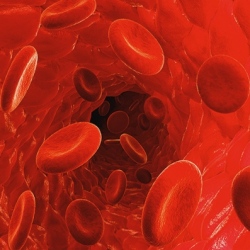
Countries must work together to wipe out viral hepatitis – a disease that is killing as many people as HIV and TB, says the World Health Organization. The death toll in 2015 was 1.34 million people, a report reveals. An estimated 325 million people are living with chronic hepatitis caused by B or C virus infection. Hepatitis vaccines and medicines exist, but they are not yet reaching everyone in need.
This is partly because infections are not always identified – just 9% of all hepatitis B infections and 20% of all hepatitis C infections were diagnosed in 2015.
As a result, millions of people are at risk of a slow progression to chronic liver disease, cancer and death, says the WHO.
Viral hepatitis refers to five different forms of virus, known as A, B, C, D, E. Some (hepatitis B, C and D) can be spread through contact with infected bodily fluids, including blood, while others (hepatitis A and hepatitis E) are spread through contaminated food or water.
In some parts of the world, including regions within Africa and the Western Pacific, hepatitis B and C infections are all too common. Hepatitis B infection requires lifelong treatment – the WHO currently recommends the medicine tenofovir, already widely used in HIV treatment – but hepatitis C can be cured with a course of antiviral drugs.
The WHO says some countries are taking successful steps to scale up hepatitis services:
China achieved high coverage (96%) for the timely birth dose of HBV vaccines, and reached the hepatitis B control goal of less than 1% prevalence in children under the age of five in 2015
Mongolia improved uptake of hepatitis treatment by including hepatitis B and C medicines in its National Health Insurance scheme, which covers 98% of its population
In Egypt, market-price competition has reduced the cost of a three-month cure for hepatitis C, from $900 (£700) in 2015 to less than $200 in 2016
Dr Gottfried Hirnschall, from the WHO, said: "We are still at an early stage of the viral hepatitis response, but the way forward looks promising.
"More countries are making hepatitis services available for people in need – a diagnostic test costs less than $1, and the cure for hepatitis C can be below $200.
"But the data clearly highlight the urgency with which we must address the remaining gaps in testing and treatment."
Raquel Peck, from the World Hepatitis Alliance, said: "Today, 325 million men, women and children are living with a cancer-causing illness, despite the availability of preventative vaccines for hepatitis B and curative treatments for hepatitis C.
"We need to use this report to advocate for a public health approach, so that testing and treatment are rolled out at the scale necessary to ensure that every person has the opportunity to live a healthy life."
